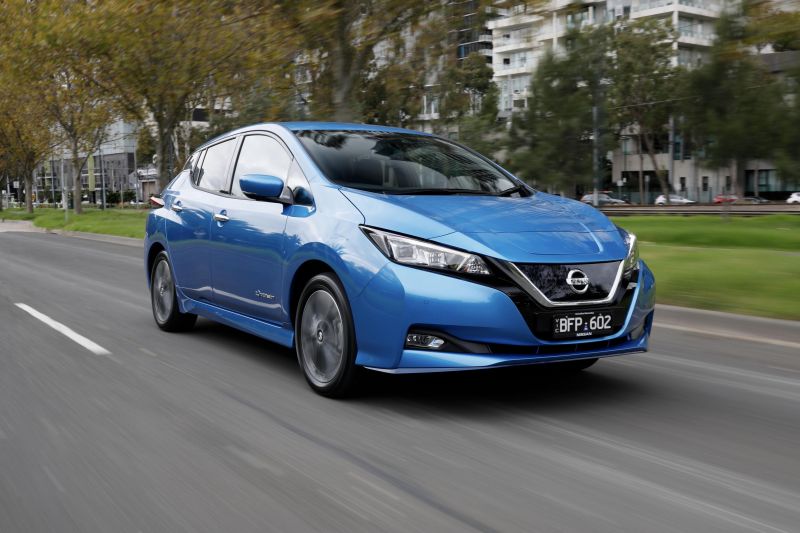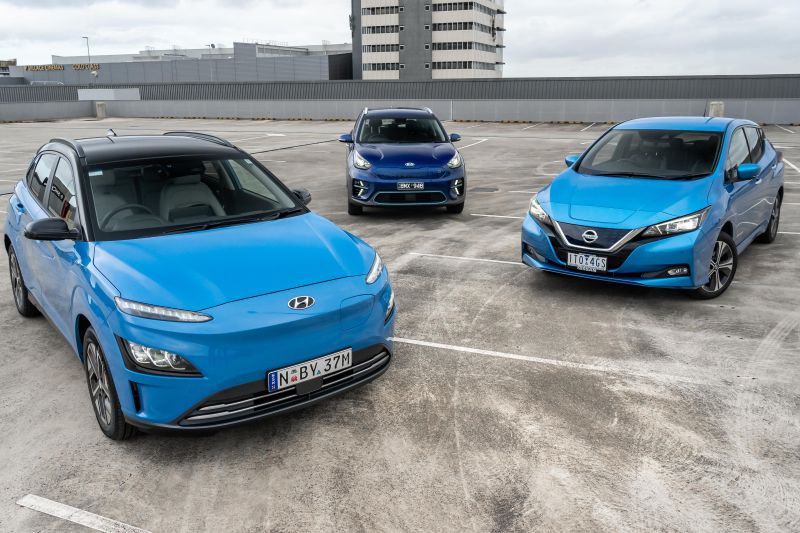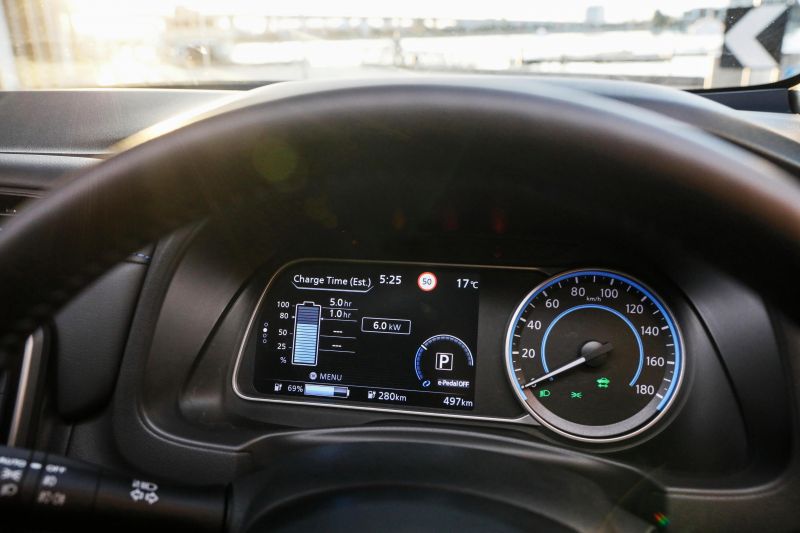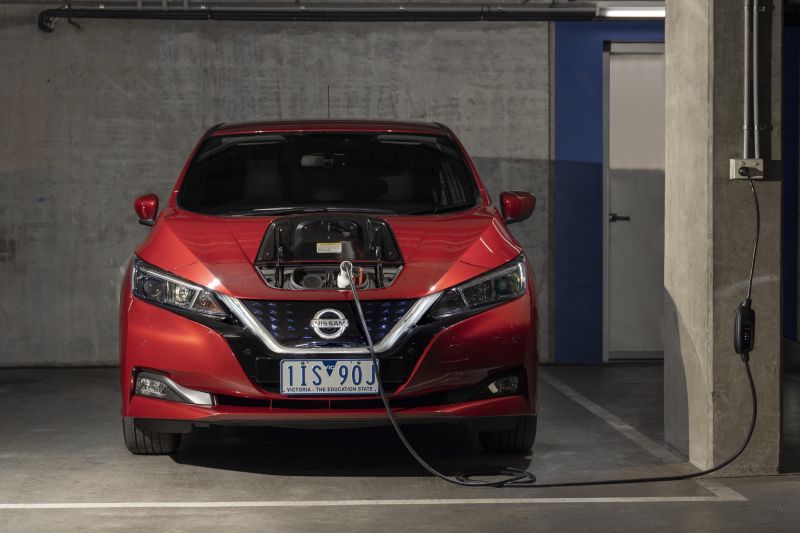Recently appointed Nissan Oceania managing director Adam Paterson said he was surprised to learn the state of Victoria imposes a road-user tax on electric car drivers.
Having recently joined Nissan’s local division from its Canada region, Mr Paterson also said it was proving a challenge to navigate Australia’s “patchwork” of State-based rebates and tax breaks for zero-emission vehicle (ZEV) buyers, which creates differences in their cost based on where a person lives.
These two standpoints largely echo those of the Federal Chamber of Automotive Industries (FCAI, peak body for the car brands) and Electric Vehicle Council (EVC).
MORE: Australia-wide EV policy needed to avoid ‘chaos’, says FCAI
MORE: Volkswagen, EV Council demand national electric car policies now
But they also come from the perspective of someone who only started working here on July 1, who has seen how another country with similar demographics to ours does it.
Canada offers a maximum $5000 federal subsidy, while there are additional sweeteners in various Provinces, including up to $8000 in Quebec.
Mr Paterson did not call for any particular incentives on EVs to be introduced here. But he did suggest they were a global reality and said there was a correlation between them, and EV take-up.
“I’ll make a general comment and back up: Again, [I’m] new to the market, and understanding the patchwork of State versus Federal incentives… is a challenge, right?
“My experience most recently in Canada, when we looked at how Leaf sales were sold, regionalised, is that the volume did not match the overall TIV [Total Industry Volume], the volume dispersion matched incentivisation.
“So Province of Quebec, which was like 25 per cent of the total industry, was delivering 50 to 60 per cent of the EVs because they had the strongest incentive.
“… But at least what they do not have, at least with the exception of one Province, is taxes on consumers to prevent them from getting on the road. So that to me is one thing that I’m a little bit surprised at,” he added.
This refers to Victoria’s decision to impose a 2.5 cent per kilometre charge on EVs or 2c on PHEVs, to offset their lack of contribution to the fuel excise tally, which forms part of general revenues allocated to roads.
“If the goal here is to speed electrification of the market, generally speaking, my thought would be that State and Federal governments [should] be working together to incentivise that,” Mr Paterson added.
“I completely understand that at some point we do have to pay for our roads and if we’re not doing so through fuel taxes, we have to do so otherwise, but my thought process would be we want to speed up the adoption first.”
This is what both New South Wales and South Australia are doing, each postponing their mileage charges until 2027 – or a point in time before that in which EVs hit 30 per cent market penetration.
When asked if he foresaw a spike in EV sales here in the near future, citing exponential growth curves seen elsewhere already, Mr Paterson was coy. But he did suggest Federal election horse-trading might play a part.
MORE: Victorian electric car tax facing High Court challenge
MORE: Victoria’s ‘worst EV policy in the world’ slammed
“I think what happens based on incentivisation is really going to impact your initial question, which was what do I see as far as happening with the market?
“And again, I’m far from an expert on Australian politics by any means, but I think with what’s going on in the election cycle next year, that could completely change what the market looks like,” he said.
Australia’s EV policies include
ACT
- Stamp duty exemption
- Two years free rego
- No interest loans for energy efficient home upgrades
- Transition government fleet vehicles to EV where fit
Northern Territory
- Reduced rego and stamp duty from mid 2022
- Grant program for home, workplace and public EV chargers
- Transition government fleet vehicles to EV where fit
NSW
- $3000 rebates on EVs below $68,750
- Stamp duty exemption
- Transition government fleet vehicles to EV where fit
- Road user tax pushed to 2027
Queensland
- Scheme in progress, more detail here.
South Australia
- $3000 rebates on EVs below $68,750
- Three years free rego
- Road user tax pushed to 2027
Tasmania
- Two-year stamp duty waiver for EVs
- Two-year free rego for hire car companies buying EVs
- Transition government fleet vehicles to EV where fit
- Co-funding statewide charger network
Victoria
- $3000 rebates for EVs priced below $68,740
- Transition government fleet vehicles to EV where fit
- Active road user tax
Western Australia
- Helping fund statewide charging points at 160km intervals
These exist in lieu of a unified Federal policy around EV rebates or tax breaks. Australia doesn’t have any national sales targets or emissions caps in place – the latter being vital to getting access to the latest products – preferring to fund chargers.
MORE: Australia’s car brands lobby for vehicle emissions standard
MORE: Australia-wide EV policy needed to avoid ‘chaos’
MORE: Australian electric vehicle launch calendar
MORE: NSW electric-vehicle stimulus package
MORE: Victoria commits to electric car subsidies, 2030 sales target
MORE: Northern Territory commits to electric car incentives
MORE: ACT moving public-servant fleet to EVs, will slash running costs
MORE: How Australia’s federal opposition proposes to slash EV prices
MORE: South Australia passes electric car rebates – and road user tax











